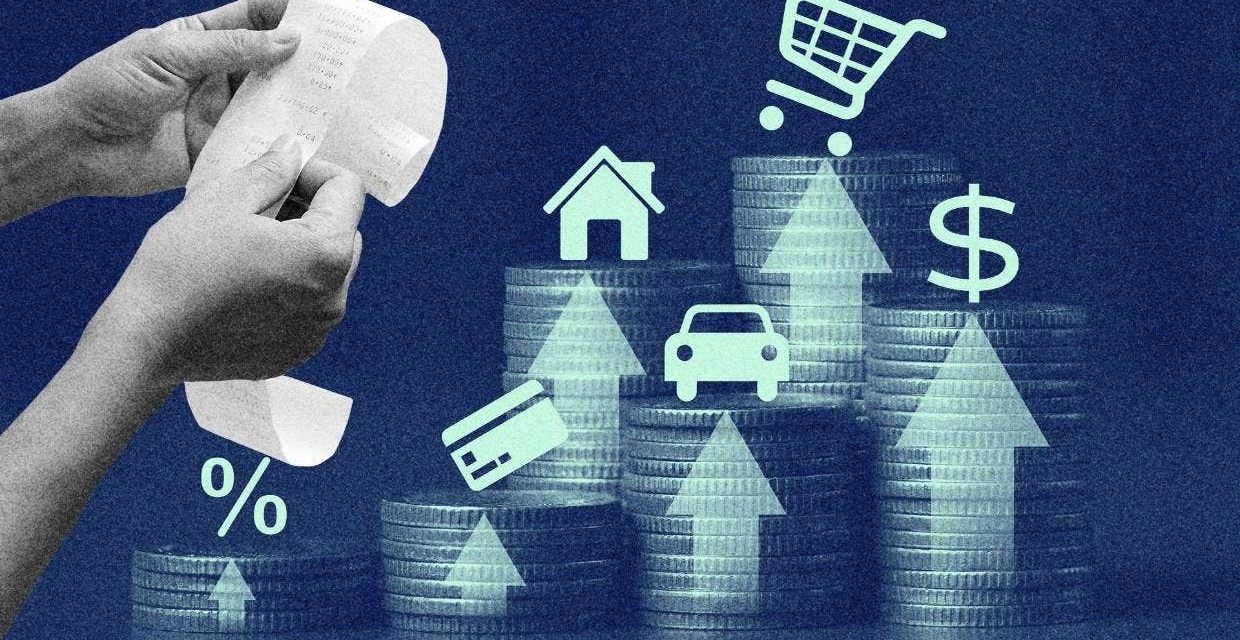Author Katrina Shanks, CEO Financial Advice NZ Article originally published in Stuff.co.nz.
The commentary has been frequent and clear: 2023 is going to be a year of challenges as inflation and interest rates continue to rise. Many economists are tipping it to be tougher financially for most people than either of the past two years. So, how are you going to survive it in good shape? In the second of our four-part series, we look at the role personal budgeting will play.
“Think harder about your spending. Think about saving rather than consuming. Just cool the jets.”
The Reserve Bank Governor could not have been clearer in his advice about getting inflation down in 2023. It’s what we each do that will help the greater good.
And when it comes to saving vs consuming, the easiest way to do that is to budget so you can live within your means.
The good news is many of us are already doing that.
A recent survey [by Finder] showed some 79 per cent of respondents – equivalent to nearly 3 million New Zealanders – had changed their personal financial habits as a result of the pandemic. Importantly, 32 per cent are doing more when it comes to setting to sticking to a budget. Some 62 per cent said they had not changed their budgeting, which we can hope means they were doing it already.
So, why do a budget?
They’re a great planning tool that allows us to understand the state of our financial position – our income, our expenditure, and our must-haves and like-to-haves.
When you know the state of your financial position that enables you to live within your means and not get into debt. And when you don’t live within your means, things can get tricky and hard to sustain. With credit card debt increasing and buy now pay later options everywhere it can be difficult to keep a real track of your cashflow.
When putting together a budget it’s ideal to start with your income and your basic needs, and build from there.
Then add in the nice-to-haves alongside your other priorities, such as savings with a particular goal in mind, and investing. In some instances, you may have money left over when you deduct your essentials from your income; in other instances, you may have a deficit, which means you will have to find some savings in your spending.
Either way, knowing your financial position is empowering and very satisfying. Budgeting is important regardless of the income you earn. Many households budget to just make ends meet and other households need to budget to ensure they don’t waste funds to allow more room for paying off the mortgage faster, and for savings and investment opportunities.
It’s a good idea to prepare a budget every year, not just now when things are looking tight.
This isn’t an easy or fun task but it helps you reset for the coming year.
Your budget and cashflow
There are so many tools out there that can help you with your budget – from banks, the Commission for Financial Capability and its great Sorted website, and any number of financial adviser websites.
Though it’s never been easier to spend money using electronic banking via debit cards, credit cards and buy now pay later platforms, it’s also never been easier to use those same electronic options to your advantage. Or just use a spreadsheet or a notebook.
Setting your budget
If you record all your expenses in detail and total up the amount at the end, you have a good chance of understanding your cashflow position. Then calculate all your regular income and subtract your expenses to see if you have a surplus cashflow or if you’re in the red. If you’re in the red, don’t give up – keep making adjustments until you get into a positive cashflow situation. Just make sure your budget stays true to what you’re trying to achieve.
So are there any rules as to how much I should save or spend for my income level?
One is called the 50-30-20 budget rule. This is about taking your after-tax income and allocating your spending 50% on your needs, 30% on your nice-to-haves, and 20% on your savings. The hard part is keeping your needs to just 50%, which is often easier said than done. You could tweak it a little, say 60-20-20, or whatever suits your situation.
Sticking to it
Having set your budget, there are many tricks to help meet it. Here are a few:
- – Sleep on big purchases – take your time if it’s not something you need.
- – Never spend more than you have – this probably means being very careful with credit cards and delaying a spend till next week.
- – If you have a credit card, set a lower limit and pay more than the minimum amount.
- – Give every dollar you earn a job to do, even if it’s in KiwiSaver.
- – Go on a spending freeze from time to time – spend on only necessities for a week and see what’s left over. More for savings or that special treat?
- – Plan your meals, do your grocery shopping online (to cut down on temptation), and stick to your list.
- – Shop smart, shop around.
- – Promise yourself that when you make your budget, you’ll reward yourself.
Pay off bad debt first
Once you’ve set your budget, you can start putting your surplus cash to good use, such as putting it into savings, increasing your repayments, or clearing debt. Try not to get ahead of yourself and blow that extra money.
If you have any credit card debt or personal loans it would be ideal to pay these off first because they attract a higher interest rate.
Getting out of the red
If your budget is in the red then you may consider trimming back some of your non-essential spending. This includes things such as:
- – cellphones on expensive plans or new models that are not required
- – that bargain in a sale or upgrading to a newer version of something that isn’t broken – such as TV’s
- – online entertainment accounts – how many do you need?
- – buying your lunch and a coffee when you can use food from home
- – using the car instead of using (half-price) public transport
Essential expenditure can also be reviewed. Shop around for a cheaper electricity supplier, bank accounts that incur lower fees, groceries from cheaper supermarkets or hunt out specials, buy in-season items, and visit local markets for cheaper fruit and vegetables. Also look at your mortgage repayments, which you may be able to structure differently.
Making some of these changes can be fun and really rewarding – especially if you feel like you’re getting ahead.
Once you’re in the habit of reducing your outgoings, check your progress every three months to see how the changes have affected your cashflow. You should see some difference, so keep it up and lock in your good spending habits.
As I’ve written, on many occasions, I’m a bucket budgeter and I’ve set up individual bank accounts (online accounts that incur no fees) into which money gets distributed to each month. I plan what I want to achieve each year and then start automatic payments into my accounts, so like magic when I want to do what I’ve planned the money is there. The trick is in being disciplined not to touch the buckets for other causes!
As my adviser would say, budgets work only if you stick to them. Stay the course, and if you have some glitches get back on track as soon as you can. Remember, small habits can grow to achieve great goals over time.









